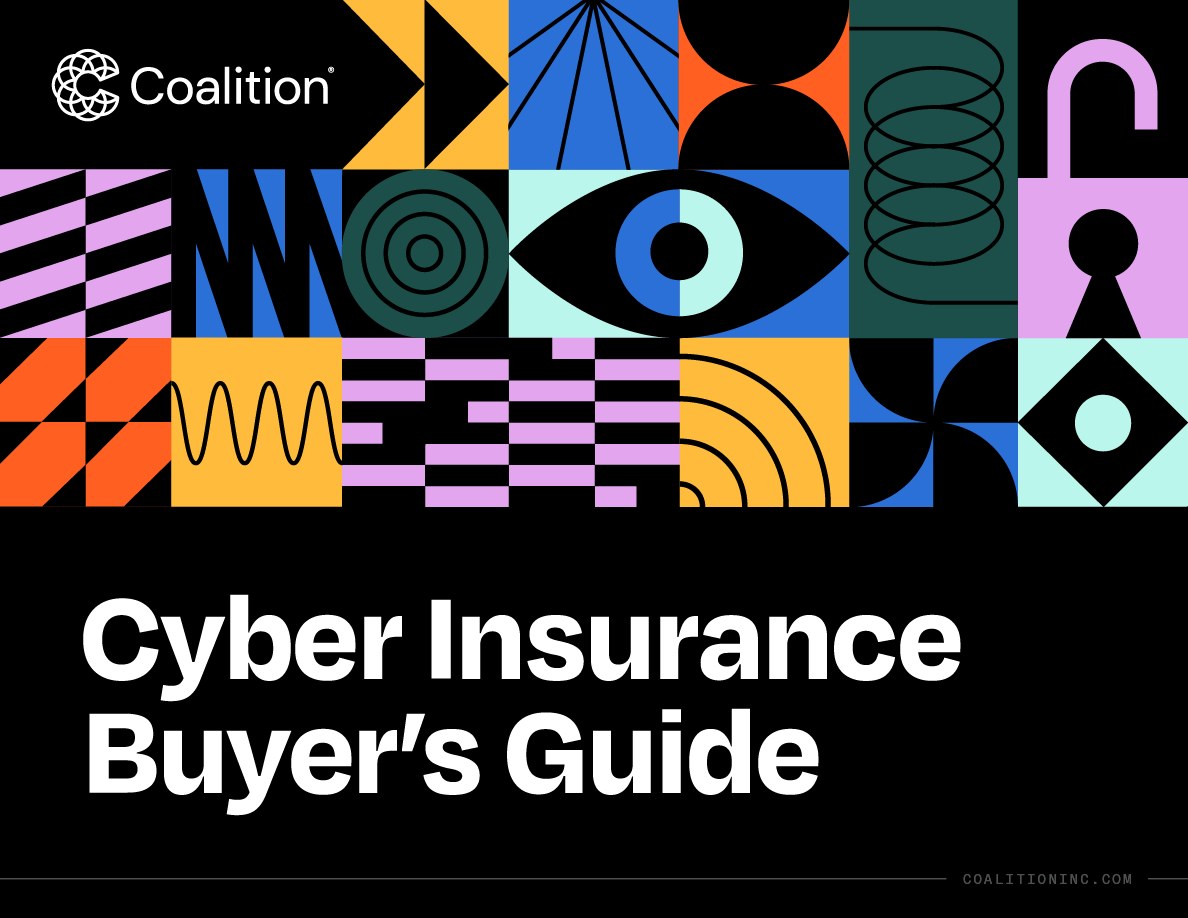Why cyber insurance is critical for real estate organizations
Digital innovation in the real estate industry has enabled faster transactions, precise property searches, and more efficient client communications. However, these advancements have also introduced new cyber risks, as attackers are increasingly targeting the sector to exploit weaknesses in IT infrastructure and data security protocols.
With access to a wealth of personal and financial data about their clients, real estate professionals must be mindful of how the technologies they depend on daily can be compromised and the data privacy issues associated with cyber breaches. If an attacker gains unauthorized access to sensitive information, such as property details, contracts, or client data, it can lead to costly fines, significant reputational damage, and loss of clients, underscoring the importance of cyber insurance.
How bad could one small security incident be?

$193,000
Average cost of a cyber claim for real estate businesses

78%
Percentage of cyber attacks originating from email inbox

$317,000
Average ransomware loss for real estate organizations
Unique exposures for real estate organizations
How essential technologies can create cyber risk
CRM systems
Client relationship management (CRM) systems are used to support business development activities. Containing client data and confidential corporate information, these systems could be compromised and leveraged for malicious purposes, resulting in a data breach.
Document management systems
These platforms are used to store a large volume of shared files. However, a compromise could expose sensitive data and cause disruptions due to the potentially sensitive nature of the data in these systems.
eSignature technology
This technology allows contracts and agreements to be signed electronically, saving time and reducing the need for paper documents. If compromised, contracts and agreements could be altered, leading to legal disputes.
Property management software
This software is used to manage various aspects of rental properties, including HVAC systems, IoT devices, and guest Wi-Fi networks. Unauthorized access could result in the compromise of sensitive lease agreements or maintenance requests.
Social media
Many real estate agents use social media to interact with clients and share information, but compromise or misuse of these platforms by employees or attackers could have serious implications on its reputation and public image.
Websites & online listing platforms
Real estate businesses rely on websites and listing platforms to showcase properties and generate leads. If compromised, sensitive data could be accessed or fake listings could be created, creating additional exposure.
How sensitive data can increase business liability
Corporate confidential data
Commercial real estate companies may have access to internal operations data, intellectual property, or trade secrets. As various parties collaborate and share information, corporate confidential data is at risk of being leaked, which could cause significant damage to the data owner.
Financial data
Used for loan and mortgage approval, property valuation, and financial reporting, real estate professionals often have access to bank details, credit card information, income and assets, loan information, and credit history.
Protected health information (PHI)
For the purposes of accommodation and compliance, real estate professionals may collect or possess data about clients’ physical or mental health, such as medical records. Bound by the Health Insurance Portability and Accountability Act Privacy Rule (HIPAA), they carry additional data protection and reporting requirements if an actual or suspected data breach occurs.
Personally identifiable information (PII)
PII is any data that can potentially identify a specific person. PII can be used to launch cyber attacks or gain access to networks to initiate attacks. Organizations that mishandle PII or fail to respond to a data breach appropriately can be subject to fines, penalties, and other financial damages.
For more insights, download our complete guide:
Business impacts for real estate businesses
What to expect after a cyber incident
Direct costs to respond
Responding to a cyber event typically requires numerous direct costs, also known as first-party expenses. If a real estate organization experiences BEC and sensitive data is involved, it can trigger a need for additional legal counsel, forensic investigation, victim remediation, and notification. Simple investigations can cost tens of thousands of dollars, while more complex matters can increase costs exponentially.
Liability to others
The evolving data privacy landscape can be difficult to navigate, and many real estate companies face new and unexpected exposures after a cyber event. Even with strong contracts, policies, and best practices in place, a data breach, security failure, or even a simple mistake can trigger liability to third parties and expose an organization to regulatory investigations and legal action from victims.
Business interruption and reputation damage
A cyber event that impacts essential technology can have a significant impact on a real estate organization's ability to operate and can be highly visible to clients, customers, and other stakeholders. Even short periods of disruption can lead to direct loss of revenue and inhibit a law firm’s ability to support clients, negatively impacting client retention and acquisition.
Cybercrime
Beyond ransomware and data breaches, real estate companies and their clients are particularly vulnerable to the theft of money by electronic means. Financial transactions, such as closing costs, are usually time-sensitive and handled by email, phone, or text message, creating an opportunity for cybercrime. If a cyber criminal impersonates the real estate firm through social engineering and gains email access, it can lead to mortgage wire fraud where the attacker diverts funds. Cybercrimes and scams can lead to losses of tens or hundreds of thousands of dollars almost instantly.
Recovery and restoration
After a cyber event, resuming operation is no easy task. If an attacker damages or destroys essential technology, data, or physical equipment, a real estate organization may need to bring in external support or purchase new equipment to re-secure systems. Full remediation, restoration, and recovery can take a significant amount of time, when possible, and may require new software, systems, and consultants to rebuild the network.

CYBER INSURANCE BUYER’S GUIDE
Choosing the right cyber coverage for your business
Cyber insurance is an essential aspect of modern risk management, offering coverage for the losses associated with data breaches, cyber extortion, business interruption, and other cyber-related incidents.
Coalition created a Cyber Insurance Buyer's Guide to help businesses navigate the complex cyber insurance market and confidently select the right coverage for their business.








